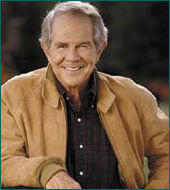(Crossposted from the American Constitution Society :: Columbia Law School)
Here's the toast from the 222nd Annual Constitutional Law Mixer, held at Columbia Law School on February 4, 2008. As in years past, the event was jointly hosted by the local chapters of the American Constitution Society, the Federalist Society, and the Constitution Law faculty here at Columbia.
First, I want to thank ACS & FedSoc for inviting me to give a toast at the 222nd Annual Constitutional Law Mixer. It's an honor to be a part of a tradition that predates both interchangeable parts and modern plumbing.
As Chancellor Kent was known to say: "Our annual Con Law Mixer? Yeah, that's kind of a big deal."
Back
in May of last year, I stumbled across Robert Harris's review of the Barbara Holland book
The Joy of Drinking. In Harris's review, he noted Holland's research into the role alcohol played in the creation of the United States Constitution. Harris writes that:
[I]n 1787, two days before their work was done, the 55 delegates to the Constitutional Convention “adjourned to a tavern for some rest, and according to the bill they drank 54 bottles of Madeira, 60 bottles of claret, 8 of whiskey, 22 of port, 8 of hard cider and 7 bowls of punch so large that, it was said, ducks could swim around in them. Then they went back to work and finished founding the new Republic.” Note the 55 delegates and 54 bottles of Madeira. Which founder was slacking?
PG, a recent CLS graduate and the only person I know whose Constitutional leanings led her to be an active member of both ACS and the Federalist Society,
speculated that
Thomas Mifflin – at the time the sitting
President of Pennsylvania and a Quaker prior to his expulsion for serving in the Continental Army – was the teetotaler; however, given the amount of drink involved, it's unsurprising that the identity of the true abstainer would be lost to history.
Perhaps it was the drink, but there's so much about the Constitution that's been lost to history, so much that the Founders forgot to tell us about the meaning and the crafting of this founding document:
- Dear Founders, is that a comma, a semi-colon, or a fleck of dirt?
- O Breech-pants-wearing Founders, is the office of the Vice President firmly seated within the executive branch, or is it an extra-constitutional floater, like the extra outfielder in a game of slow-pitch softball?
- O Founders, did you really believe that human nature would permit the loser of the Presidential election to serve as a good Vice-President to the winner?
- Founders, why-oh-why did you decide to capitalize nearly every noun in the Constitution? ...and what's the deal with the handful you didn't capitalize? (...and 1L's: That's a gangbuster note topic, by the way.)
- O Founders, are there secret messages in your tortured and inconsistent spellings?
Ultimately, we just don't know the answers to any of these vital questions, so we're left to make like the founders and drink a little Madeira, claret, whiskey, port and hard cider — maybe that will bring some clarity. (Incidentally, I was told that this event would have a bowl of punch so large that ducks could swim in it. Maybe that's coming later.)
In finishing my toast and finally raising a glass, I want to end with a meditation.
Let's meditate upon how the Constitution would have looked if Ben Franklin had had more creative control over the text. After all,
historians report that when Thomas Jefferson sent Franklin a draft of the Declaration of Independence containing the line
"We hold these truths to be sacred and undeniable," Franklin returned it to him with the last three words crossed out and replaced by
"self-evident." Surely the person responsible for this memorable and meaningful term into the Declaration of Independence could have helped us more with the Constitution.
(By the way, for those of you who are measuring the productivity of your lives against the lives of the Founders or choosing your political candidates on the basis of age, please note that Thomas Jefferson was all of 33 years old when he helped draft the Declaration of Independence.)
Now, I happen to know what Franklin would have done if he'd had his way with our overly short & oft-confusing Constitution. He would have included two final clauses.
In fact, I know which clauses Franklin would have inserted.
Truth be told, I find the tension between these two clauses to be roughly analogous to the on-going dialogue that occurs between the Federalist Society & ACS.
The first clause is a quote of Franklin's, taken from Poor Richard's Almanack, 1734. To me, this is the Federalist Society clause:
"Be temperate in wine, in eating, girls, and sloth, or the gout will seize you and plague you both."The second clause does not appear in any published writing of Franklin's, but has been broadly attributed to him. Naturally, the lack of textual basis for this quote (and its feel-good character) makes it more appropriate for ACS. The clause is:
"Beer is proof that God loves us and wants us to be happy."So please join me in raising a glass: Here's to Franklin, to the other Founders, to their strange and wondrous Constitution, to ACS, to the Federalist Society, to being happy, and – above all – to trying our best to avoid the gout.CHEERS!






















